This post is a transcript from the Webinar: Choosing Your RV with Brandon Hatcher and Kerensa Durr, edited for clarity. To watch the Webinar, scroll to the bottom of this post or click this link.
Don’t have time to read or watch right now? Click here to save to Pinterest for later.

Whether you’re new to RVing or looking to change up your RV, you’ve likely already learned there is a lot of information to take in and evaluate. On top of that, you don’t know what you don’t know!
Since we hit the road full-time, we’ve been through a couple RVs. On our searches, we had either a hard time finding what we were looking for or had to sort through way too much information, both of which made it hard to finally make a decision we were comfortable with.
To help others who may be in our same position, we have some insight into the journey and questions that can better prepare you for choosing your RV.
Everyone Has An Opinion About Which RV Is Best
We started out with a pop-up camper. We used to live right near New York City, so we needed something to get away from the city and get out, making the pop-up camper great for us. We could grab it on the weekend, tow it with anything and get out away from town.
When we decided to go full-time, we wanted something more than a pop-up (we have since met people full-timing in a pop-up!). So, we started doing the research and fell into the rabbit hole, going deeper and deeper. We were sticks and bricks people (another name for those who live in a traditional house) and we didn’t have a true idea of the mobility compromise and what we really needed in an RV.
Like many others, we started asking everyone else. We were getting tons of opinions about choosing an RV, and all those opinions led us to a 40-foot diesel pusher Class A motor home, which was beautiful. And it was great, and it was powerful. It had lots of room, had a lot of amenities in it, and really was super comfortable. But as time went on, we found it to be a little big for us. It was other people’s dream, not exactly ours.
You’ll see that a lot as you poke around on discussion forums and Facebook groups and read various blogs and articles. You will find responses such as “Well, I would never full-time in anything smaller than this,” or, “I would never full-time without this” and, “You must have this to be a full-timer,” or, “You must have this length. If you need to have this… You must have this much space.” People think there’s no way you can do it in a pop-up, yet we’ve met people who do.
What we’ve come to realize is people are extremely adaptable. Knowing that helps you understand that maybe you don’t need as much as you think you do, or maybe you do, depending on your situation. To help you narrow down your options, there are some questions to ask yourself about your future RV life.
Questions to Ask Yourself When Choosing an RV
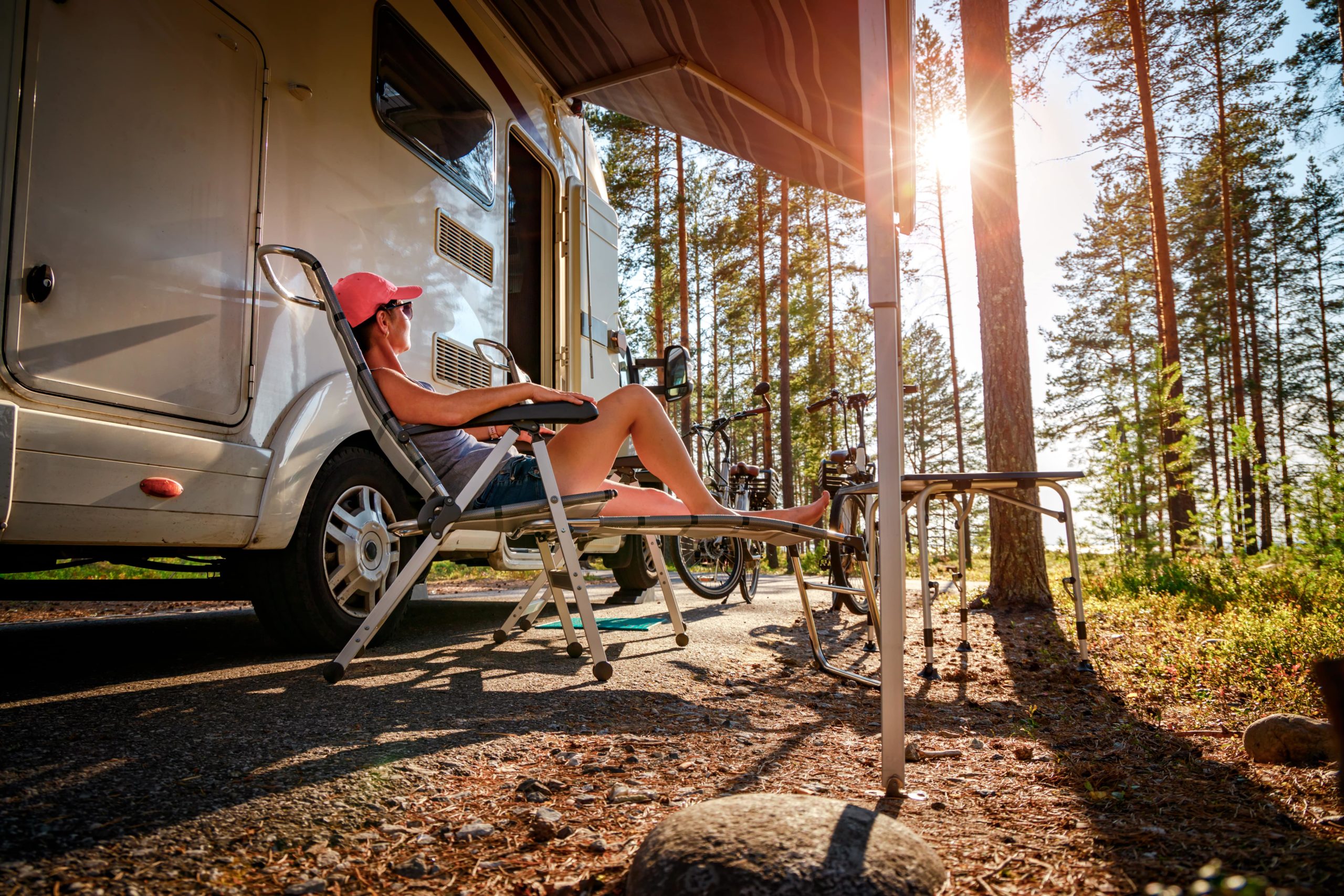
Why do you want to RV?
So the first thing you really need to figure out is why you want to RV. This seems like an easy question. “I want to travel.” Okay, but do you really want to travel? Do you want to travel a lot? If so, maybe something that’s a little smaller and a little more mobile is better for you. Or do you want to aim for longer stays in fewer places? If so, something that’s a little bigger, a little more comfortable may be better. There are just as many different RVs as there are houses to suit a variety of wants and needs.
What do you want to do in your RV?
Once you have an idea how mobile you want to be, you need to figure out what you’ll be doing along the way. Think about your hobbies, your pastimes, and the things you do every day. We work from our RV, so we wanted to make sure that we had a workspace. We needed two places that we could set up computers for each of us to sit all day if we need to.
When we were starting out, we very much wanted an office that we could close off and not look at. That was a nice idea, but that means we had to have a separate space that is closed off at some point in time and unusable for other functions. In turn, that meant that the RV needed to be a little bit bigger. What we didn’t realize is that in RV life, because we travel so often, we have to put everything away before heading to the next destination. So, it may be messy for a week or two, but eventually it’s going to get put away, and it’s going to be fine. It actually tends to stay cleaner now, which makes us happy.
The same thought process goes for hobbies. Do you sew? If so, what do you want to do with your sewing machine? How do you want to store your fabric and other supplies? Whether you crochet, paint, woodwork, build puzzles, whatever your interest may be, think about how you want to work on that hobby while you’re RVing and how you may want to store the things you need.
How much time will you spend in your RV?
Are you a homebody, or are you only going to sleep in your RV? If you’re someone who enjoys being home, make sure to take your comfort into consideration and plan for rainy days as well as sunny days. Even if you plan to spend more time outside away from your campsite, make sure you also think about what you’ll want to do in inclement weather when outdoor adventures aren’t as appealing. How do you want to spend your time on those days?
Keep in mind, even if you are a homebody, you don’t need that much space for it. On a nice day, you can be outside at the picnic table or in your favorite camping chair. To read a book, go lay in bed or stretch out on the couch. You don’t need to have a separate reading area where you can go and read.
On the other hand, if you’re the kind of the adventurer who is out all day, and all you’re really doing is sleeping your RV, why do you want to carry a bunch of extra space around? If your RV is just your crash pad, something like a teardrop trailer would likely suit you well. You would have a bed, kitchen, and maybe a bathroom depending on the model you choose.
For us, we can be homebodies. Because of RV life, though, we’re always somewhere new, somewhere we want to be, and there’s always something we want to go see. When we’re in the RV, we’re cooking, we’re sleeping, we’re working, and if we’re not doing those things, we’re outside. We’re gone. We’re out exploring something, or driving around, doing something. This should encourage you to think about what you want your life to be like, too. In your stationary life, you wake up, you go to work, you come home, you watch TV, and you do it all over again the next day until the weekend or vacation time comes. What do you want to do in your nomadic life?
This applies for part-time travelers and weekenders, too. If you’re a weekend traveler, you may want to go out a lot and try to explore everything you can in a few days. You may also find yourself craving quiet time around your campsite to relax and unwind after a hectic work week.
Who all must fit in your RV?
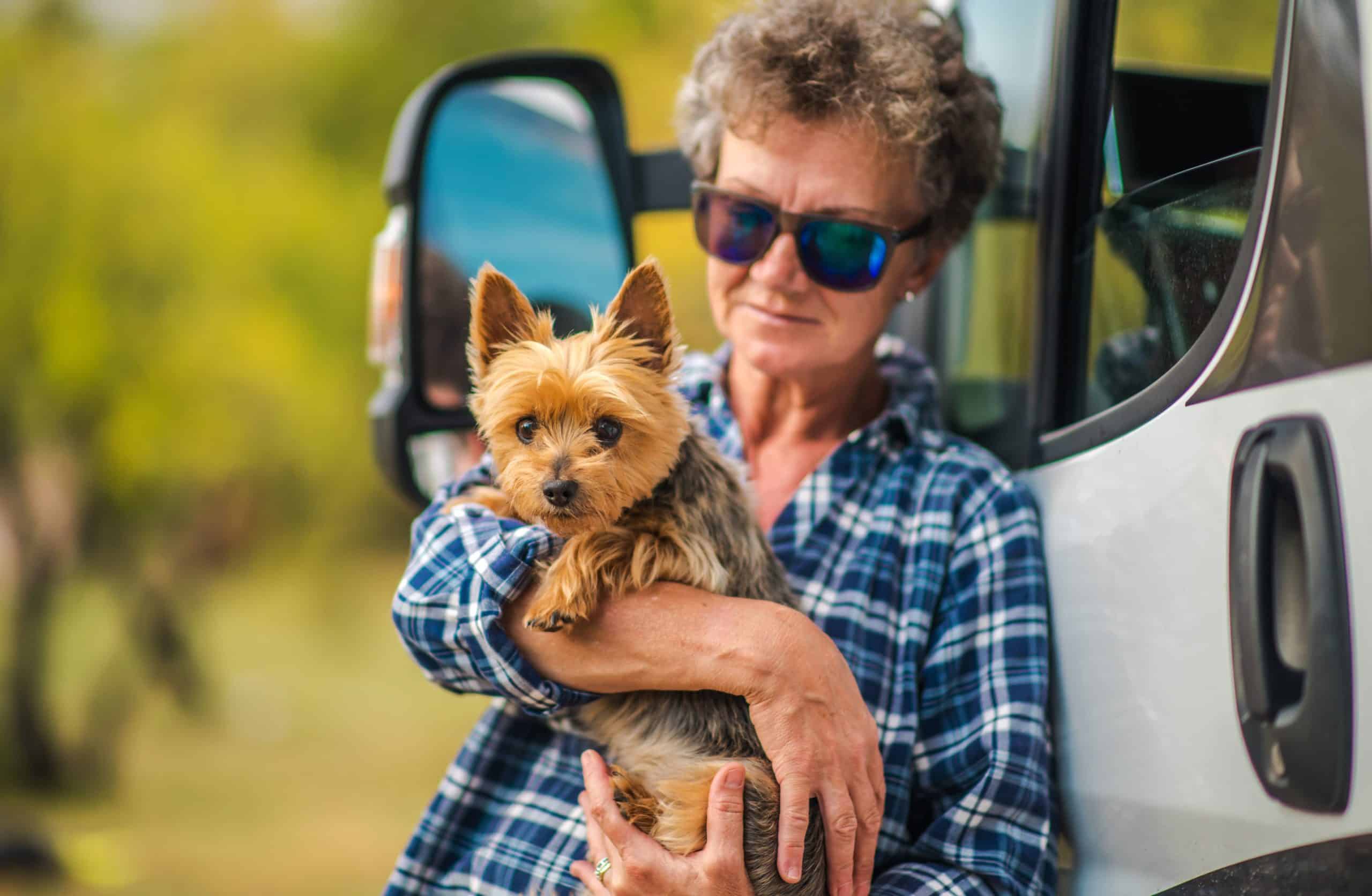
Who is traveling with you? Is it just you? Do you have a spouse? Do you have kids? Do you have pets, even, that are traveling with you? Because you really want to have a space for everyone in there, including a place to sleep. When thinking about your pets, consider the space needed for a pet bed. If you’re bringing a cat along, a litter box is important. Where’s that going to go? There are a lot of creative things you can do so you don’t have to dedicate a whole giant space to it, but you should still think about this during your RV shopping.
If you’re a grandparent or a parent, maybe you’re thinking, “Well, my kids are going to come with me occasionally, maybe once or twice a year and camp with me. I need to have a sleeping space for them.” Weigh your options: do you need to carry around a whole extra bed for two times a year? Or can you get them an air mattress, or a tent, or let them rent a cabin in the RV park you’re in? Many RV couches fold out into beds, too, which is good enough for a weekend here and there. When choosing an RV, try to not carry around a whole extra bedroom for something you’ll only need a few times a year.
This isn’t a house, it’s an RV, and it’s got to go places. You have this compromise in RVs between mobility and comfort. The bigger and more comfortable an RV is, the less nimble it will be. The more mobile it is, the less comfortable it will be. Find your balance. I think that’s what tripped us up in the beginning, we didn’t understand that.
Where do you want to RV?
Where do you want to take this thing? What kind of stuff do you want to do in it? If you are a frequent traveler, you might want less hassle, and not have to set up and break down as much. Someone who snowbirds, maybe they want more space, and they don’t mind having a lot more breakdown and hooking up because they aren’t doing it as often.
If you want to be a boondocker, or even if you’re not sure, but it’s kind of an interesting and exciting idea, then you may want more tank capacity. When choosing an RV for boondocking, bigger fresh, grey, and black water tanks will allow you to stay out longer. And you’re probably going to want an RV that’s a little bit shorter vertically and shorter length so that you can push further out into the woods or out into the desert. That being said though, the desert Southwest can pretty much handle any size RV you can throw at it. But the smaller you are, the more options will open up.
Make a List of Features You Need vs Features You Want in Your RV
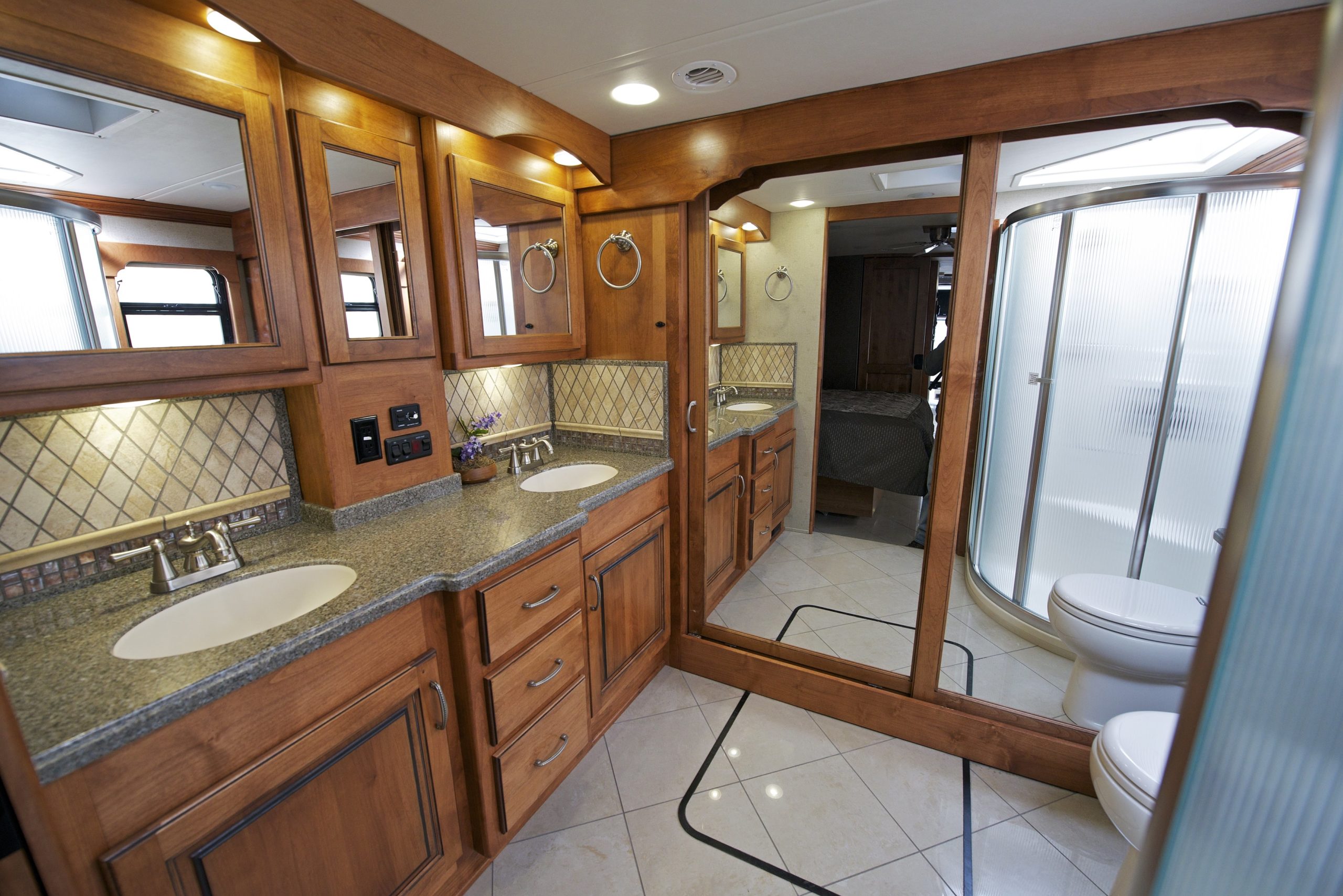
Build that needs and wants list. Keeping in mind that you and your family are the most important component of your RV adventure. What other people think about your RV, what another family that’s not RVing thinks about it, does not matter at all. What the outside of the RV looks like doesn’t matter. Now, there are some parks that may limit you if your RV is over 10 years old, but for the most part, other RVers don’t care what you look like and don’t care what your RV looks like. They just want to hang out and have fun and talk about black tanks and solar panels, because that’s what we always talk about. Seriously.
Figure out your priorities. Write down a list and include everything you’d like to have in your RV. From there, divide it up into two parts: Needs and Wants. Make sure you know the difference between the two, and you really need to be honest here. You need a bed, yes. But do you need a king size bed? Or could you survive on a queen size bed?
It’s funny sometimes when we hear people’s needs and wants lists. Often, they include “I need a washer and dryer and a dishwasher and a king size bed.” No, you want all those things. But you need wheels, and a fuel tank, and water tanks, and you need insulation, maybe, depending on your camping plans. Those are the major needs, yes, but there are a few things that you can classify as needs that may be wants to others. For example, maybe your camping plans include visiting areas where temperatures dip into the 40s or 50s, or soar into the 90s and up. Insulation becomes a need so that you can regulate the temperature inside your RV more easily and efficiently.
Apply Your Prioritized List While RV Shopping
Once you have your list, keep it with you as you shop for RVs. It will come in handy to eliminate options and increase your confidence in your choice. For example, let’s say you want to boondock. You’re at a dealership or an RV show and have narrowed your choices to two RVs. They both have all of the features you need, and quite a few of your wants, but you can’t decide which one would be the better choice for you. Look at the specifications- the fresh water tank on one can hold five more gallons than the other. For a boondocker, those five gallons can mean more time off-grid and away from a campground. Sounds like you have your top pick!
When we were trying to look for this current RV, we really wanted a propane oven. Our previous RV had a convection oven. We learned we like to boondock, and Kerensa likes to bake, so a want in our previous RV became a need for our next RV. Convection ovens take much more power than propane ones, which limited our options for boondocking! Taking the time to evaluate your list and prioritize needs over wants makes it easier to walk into an RV and say, “this fits my needs.” Then, if you find enough of your wants, too, even better!
Knowing that list also makes it easier to resist RV manufacturers and dealers who are selling to your emotions and to your eyes, but not to your brain. They will show you all the comforts of home and help you fall in love with the look and design of an RV that may not have enough of your needs to make it a worthwhile purchase. You want to be able to run through your needs list and say, “Okay, it has everything I need. What else does it have that I want?” Because that is great if you can get all those wants in there, but that’s something that you can compromise on.
Be Open to Compromise when RV Shopping
Compromise is a big deal when you’re shopping for an RV, compromise between mobility and comfort, compromise between your needs and your wants. You’ll find the RV that’s good enough for right now. And your needs will change, especially if you’re not yet traveling full-time but plan to. The day you set out to travel full-time, you’re going to start becoming a different person. It’s hard to know what you’re going to need out there until you start settling into your new lifestyle.
"Buy Your Last RV First"
You’ve likely heard someone share the idea of buying your last RV first. You may have even read it in a discussion forum or on a blog before you even started looking at RVs. If you’re new to RVing, how are you supposed to know what features or layouts you will need a year down the road? If you’re not sure what you want when you’re choosing an RV, perhaps start cheaper, save some of your money back. That way, if it’s the one you like, then great! You started cheap and you got extra money, now go have fun. If it’s not the right one after all, then you’ve got some money there to make the switch when the time comes.
This is the most important thing, is that you and your family are the most important piece of the puzzle. The most important thing that you need to figure out is you in the RV, and if it fits your needs. What works for someone else may be a great choice, but it may not be the right one for you. There is no one type of RV that’s perfect for full-timing, there’s no one RV that’s perfect for families. It is really dependent upon you and your needs and what you plan to do.
RV Shopping Cheat Sheet
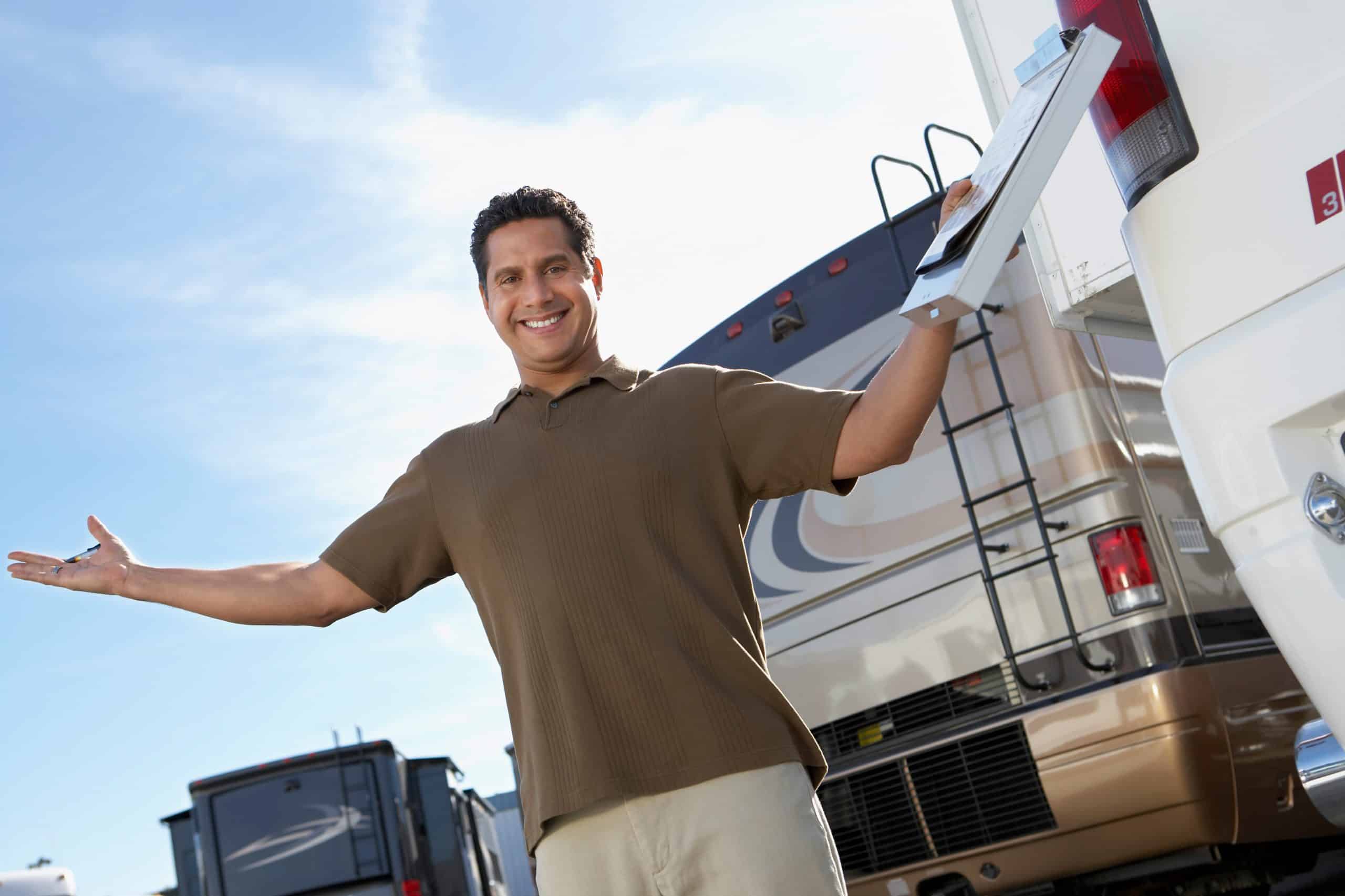
There’s a shopping cheat sheet we put together that helps keep you focused on what’s important in the RV, and not let your eyes, and the lipstick that they put on the RV, get ahead of you. It walks you through the important things that you can’t change easily, like the tank sizes and the cargo capacities, etc. Paint, wallpaper, cabinet colors, all that can be dealt with if needed. It’s really hard to go in and upgrade the cargo capacity, or upgrade the water tanks. We try to keep you focused, so that when you’re out at shows or you’re out at dealers, you can look through and check all the boxes, paying attention to what’s important in the RV.
Using your Needs vs Wants list AND the RV shopping cheat sheet will keep you in check. They will also serve as handy reference tools when you sit down to evaluate the options you liked after you’ve left the show or dealership. You’ll have a better idea of what you saw when you can look at your paper and say, “Oh okay, this one had this type of fridge or this size of tanks.”
Click below to download the RV Shopping Cheat Sheet
What If You're Buying Your Next RV?
Maybe you’re already on the road and have found your current RV doesn’t meet your needs the way you had hoped. What kinds of things can you expect in the process of buying a replacement RV? First, if your current RV is still financed, you will need to figure out how to finance two RVs if needed.
When we bought our second RV, the bank verified that we intended to sell the first RV. Because our credit was good, our income and such all worked out, they went ahead and financed the second RV in hopes that we sold the first one. It got trickier because we bought our second RV from a private seller but sold our first one to a dealer. We needed to be in possession of the second one before we got rid of the first so that we could more easily transfer our belongings from one to the other. We also had to make sure the RV park had a spot for both RVs so our “move in” didn’t require a moving truck!
New RV vs Used RV
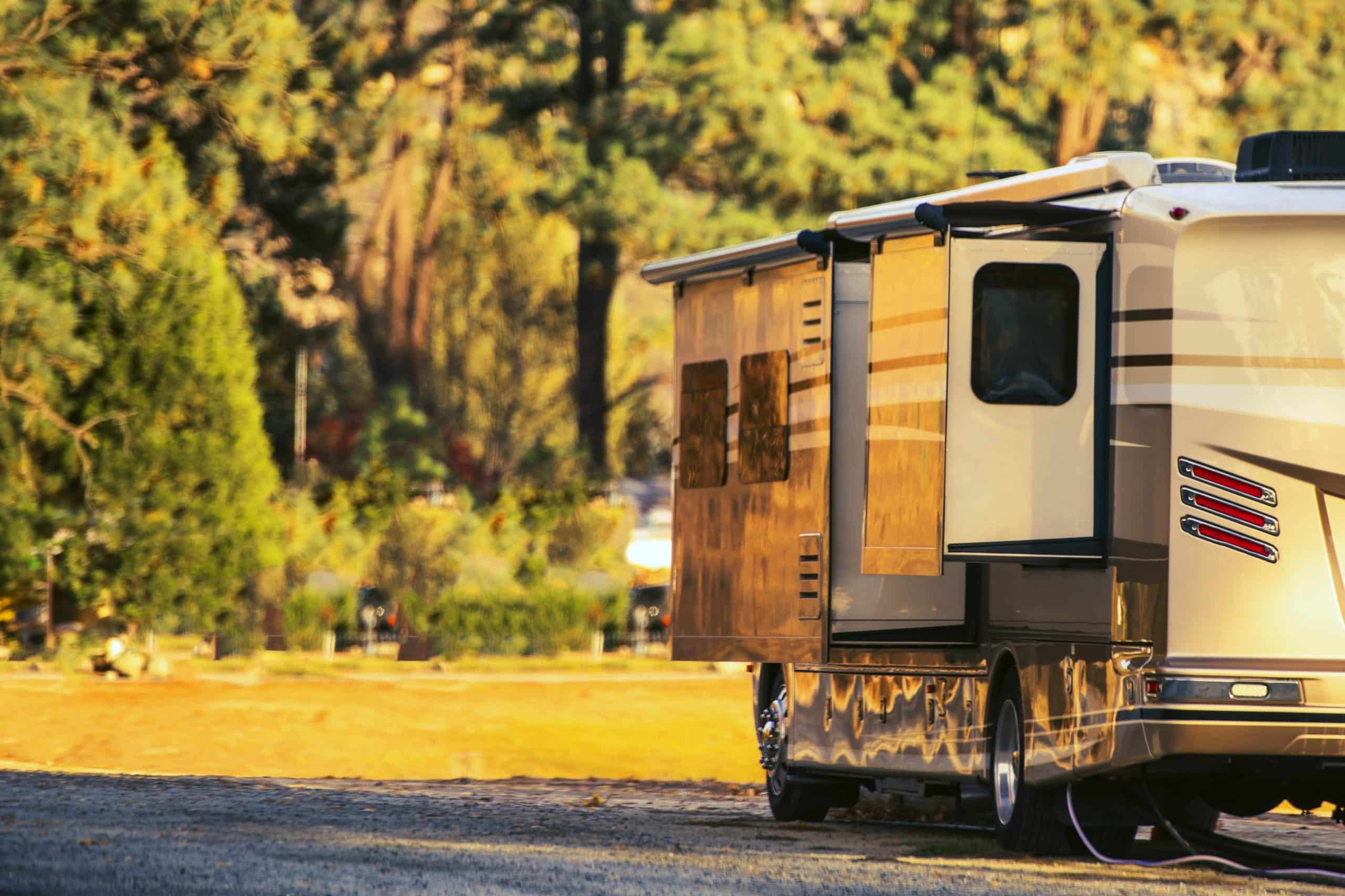
As you browse discussion forums and other places in search of advice on RV shopping, you will likely read that it’s better to buy a used RV because “someone else fixed all the problems.” Unfortunately, in our experience, that is true.
When buying a new car, you can be reasonably confident that the engine, wheels, and chassis are in great shape. The same is true for an RV! However, the “house” part of an RV is where you will find problems to address. The house has a lot of handwork involved in it. There are things that just don’t fit right and don’t work quite right, or that wiggle themselves loose. The first big trip you take in your RV is called a “shakedown” for a reason. Bouncing along the highway is similar to an earthquake in a lot of ways and brings problems to the surface. Thankfully, this typically happens while your new RV is still under warranty!
During the warranty period, you want to try to get everything that possibly breaks fixed in that warranty period. The downside of RV service is that there is usually a long line. It’s not like car service where you make an appointment, you go in, and you’re probably out the same day. You may have to leave it for a couple of weeks or even a month or more.
No RV is going to be completely perfect out of the box. Even RVs that are a few years old will have wear and tear issues or other things that come up. You also can’t foresee what accidents may happen. Whether your RV is new or used, taking the time to learn about how your major systems work, and gaining basic handyman skills will save you from hefty repair bills or lengthy waits for non-warranty repairs.
Have Realistic Expectations for Your New (or New-to-You) RV
Whether you’re touring RVs or settling into your new purchase, a common question is “Why didn’t they use a better part here?” or “Why did they do that there?” These questions are understandable but keep your expectations realistic.
Your RV is really a house that comes with all of your necessary furniture, all of your appliances, and if you’re buying a motorhome, they’re throwing in a vehicle, too! You’re getting all of this for around $100,000 new. You couldn’t buy a new, comfortable, fully furnished house (and car) for $100,000. When you look at it that way, it is easier to understand some of the choices made by the manufacturers. Few of us would be able to afford our dream RV if they built it with all of the things we think would be better.
That’s one of those compromises all RVers have to make. Understand that RVs are built good enough, and not much better than good enough, and you have to accept that. As full-timers, we use these things a lot more than manufacturers expect, and more than RVs are designed for. Most of the time, they’re thinking about weekenders using it a few times a year, not, “Let’s live in it and beat everything in as much as we can.” We use it a little harder than most people.
Be Prepared to Make Your RV Your Home
Even if you find the perfect model for you, there is so much customization that happens after purchase. This is true, whether it’s brand new from a dealer or something you’re buying used elsewhere. No manufacturer can predict all the things you may want in your rig or even be able include them all at a reasonable cost.
People often rip out the couches or chairs and replace them with recliners or upgraded furniture. We’ve also seen people repaint or otherwise modify the interior walls. Some paint their cabinets, install new hardware and fixtures, upgrade the kitchen backsplash, etc. There are ample opportunities to make cosmetic changes that help your RV feel more like home.
Because most cosmetic changes are fairly easy to make, remember to shop with your brain and not as much with your emotions. You may find a beautiful interior that you love, but the “bones” of the RV, the storage capacity, the holding tanks, aren’t what you need. Keep looking. It’s much easier to update the look than to redesign the undercarriage to accommodate larger tanks or bigger storage bays.
How to Choose the Right RV for You
Click below to download the RV Shopping Cheat Sheet
If you made it this far, then you’ve taken in a lot of information and may be feeling lost or overwhelmed all over again (which has probably become a familiar feeling by now!). That’s ok, it happens! Now is the time to write things down and start making your needs vs wants list, using the questions you’ve read here and on the downloadable worksheet as prompts for each column. Take time to download and review the RV Shopping Checklist in the Choosing the Right RV for You Power Pack, too, for more ideas AND to know what you need to look for on your next RV shopping trip!
Watch the Webinar on Choosing an RV Here:
Did you like this post? Pin it to Pinterest!
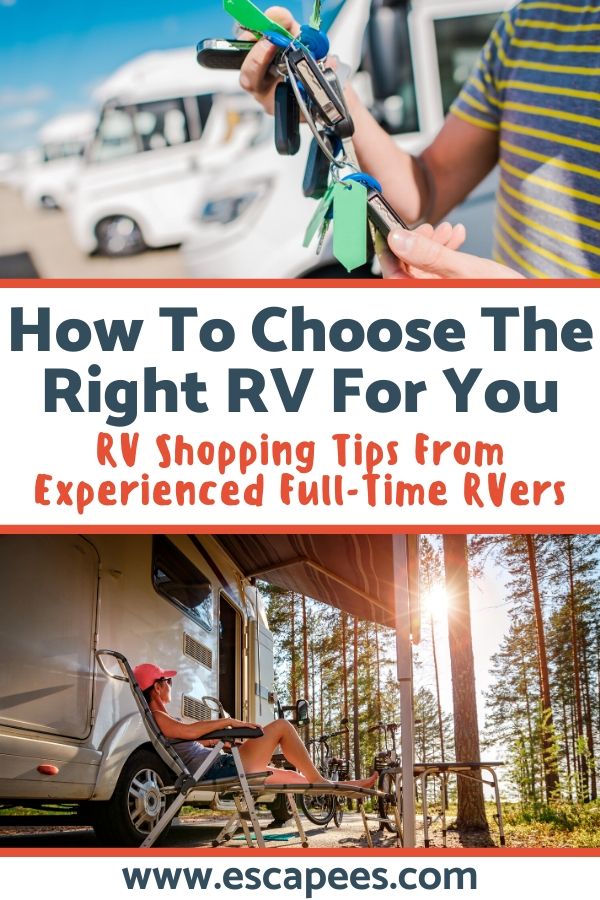

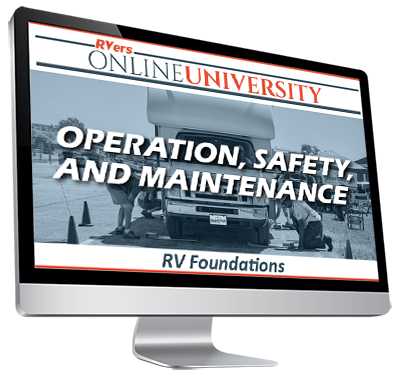



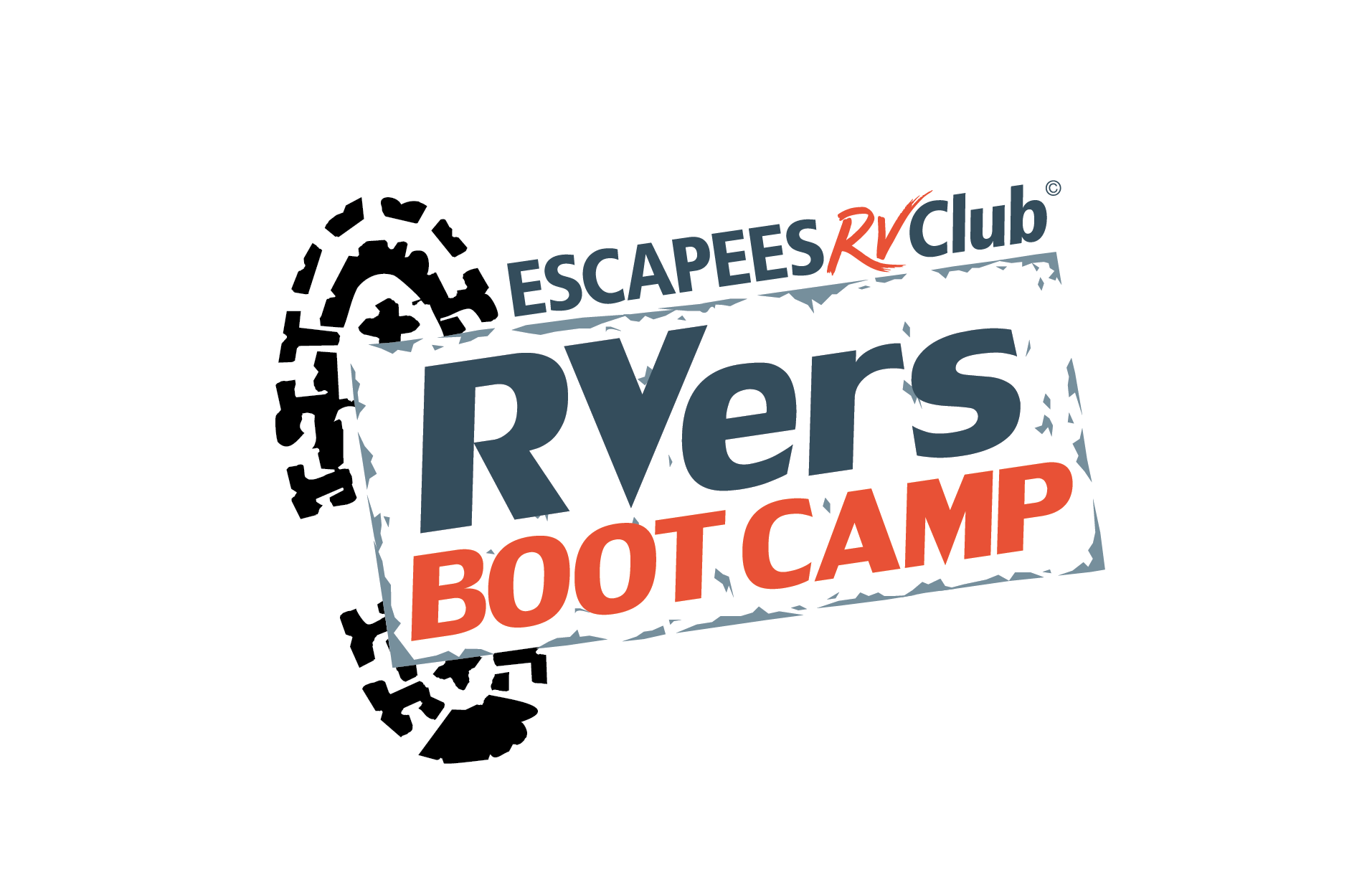


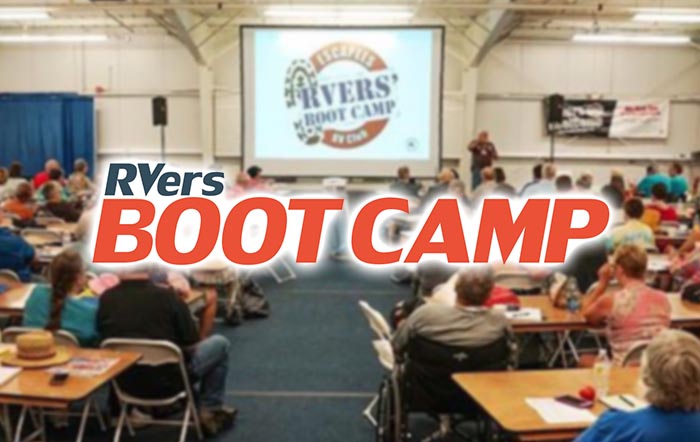
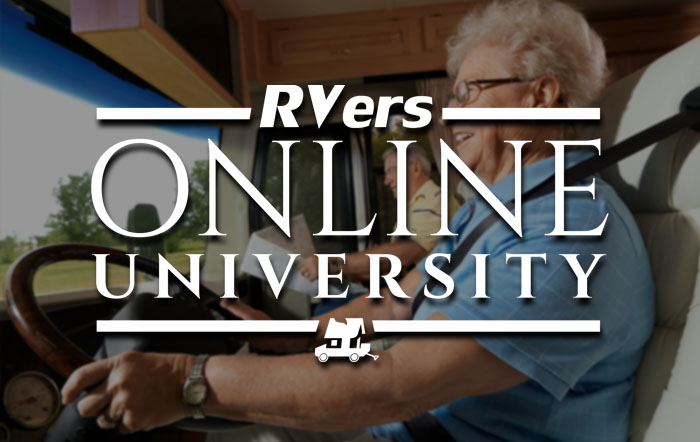

7 Responses
What if you have the perfect rv but it is old and needs updating? I love the floor plan and everything about my class c but it is a 2001. I want the same everything in a newer class c. I have been looking at different brands but the floor plan doesn’t exist anymore. How do I go about locating what I want? Beverly Bishop #51441
Have you thought about updating your current RV? Since it seems perfect for you otherwise, maybe a few upgrades and some paint is all you need. You can find a lot of inspiration on Instagram and in Facebook groups. If you really want a new RV, you’ll have to be ready to for some research and trips. Do what you can online to find similar floor plans and then you’ll want to evaluate them in person. Create and follow your needs and wants lists and be ready to compromise since your desired floor plan doesn’t exist anymore.
I just watched this webcast and thought it was very informative. I’m not in the market for a Class A or C, or a travel trailer, but am seriously considering a pop-up truck camper .. so, I definitely wont be “full-timing” in it. Nonetheless, this webcast had a lot of sound, useful info and gave me a few things to consider that I hadn’t thought of previously. This was a really nice service and you guys all did a great job .. thx!
Thank you for your reply Kerensa. I have come to the realization myself that what I have is the best for me and what I need to do is put my energy into upgrading and fixing what I can. Too bad the floor plan isn’t available anymore because it is totally livable for long periods of time. Maybe one day I will come across another one much newer and will be able to trade up. Beverly Bishop
Can anyone tell me what they think is the best 5th wheel rv for living in in cold weather?? I’m in a cougar right now and it’s not working for me…..
Hi Kim!
There isn’t a lot of back-and-forth conversation in the comment sections of our blog posts. However, you’ll have better luck with the information you seek if you ask in a discussion forum like RVNetwork.com or in our Facebook and RVillage groups.
You made a good point that buying an RV is a bit similar to buying a home because it has to be customized for my own comfort. That should be what I will think about when buying motorhome chairs after buying my own RV. Proper support for my back would be very important to have.